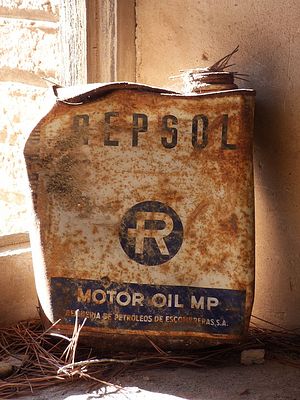A Spanish energy company has stopped all ongoing work on a planned offshore natural gas project in waters disputed between Vietnam and China in the South China Sea after a request to do so by Vietnamese state oil firm PetroVietnam.
The decision follows Chinese pressure on Vietnam that has been ongoing since the summer of 2017; Repsol suspended activity then as well. According to the BBC, the suspension and cancellation of Repsol’s planned project could cost investors up to $200 million in sunk costs.
One source told Reuters that “government ministries in Vietnam had paused the project while the decision-making politburo debates whether to suspend or indefinitely terminate the contract.”
When asked about Repsol’s suspension, Hua Chunying, a spokesperson for the Chinese Ministry of Foreign Affairs, remarked that “China’s position in the South China Sea is clear-cut, and the situation is cooling down and stabilized and showing positive momentum of development.”
Repsol’s project and offshore activities in Block 136-06, in the southeastern reaches of Vietnam’s claimed exclusive economic zone, drew Chinese scrutiny last year. This block contains the so-called “Red Emperor” field and is on the frontier of Vietnam’s claimed EEZ on Vanguard Bank, north of Indonesia’s claimed EEZ and in the southern reaches of China’s claims in the South China Sea. Vanguard Bank has long been disputed by China and Vietnam.
Estimates project a recoverable natural gas potential of 172 billion cubic feet. Additionally, the field may contain 45 million barrels of crude oil and 2.3 million barrels of condensate.
Beijing claims sovereignty over most of the South China Sea under a capacious claim known as the nine-dash line, which encompasses maritime regions claimed by Vietnam.
Last year, tensions spiked between Hanoi and Beijing over Repsol’s activities in Block 136-06. The vice chairman of China’s Central Military Commission Fan Changlong cut a short a trip to Vietnam in June after Hanoi refused to comply with a Chinese request to demand that Repsol cease its activities in the block.
The flare-up in tensions came one year after a Hague-based tribunal found China’s nine-dash line claim in the South China Sea invalid under the United Nations Convention on the Law of the Sea. The tribunal was ruling on a case filed by the Philippines against China in 2013.
Vietnam and China saw a major flare-up of tensions in 2014, after a Chinese state-run oil company moved an oil rig into disputed waters, prompting a prolonged maritime standoff involving naval, coast guard, and civilian vessels from both sides.
Repsol is not the only international firm to have its prospective exploration and drilling activities offset by geopolitical tensions in the South China Sea. U.S. oil firm ExxonMobil and India’s state-run ONGC Videsh have also conducted activities in and near disputed blocks. (Exxon’s plans to exploit natural gas reserves are outside of the nine-dash line, but the undersea deposits could cross the line.)

































